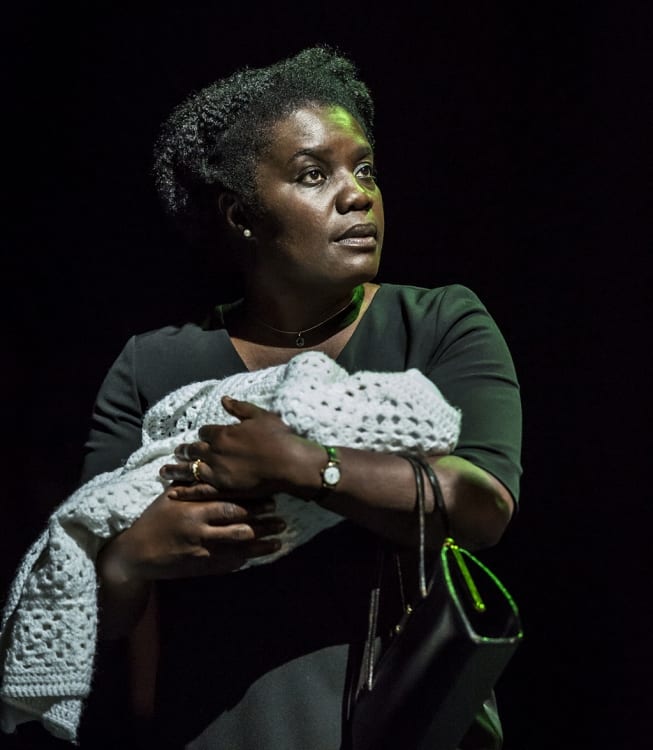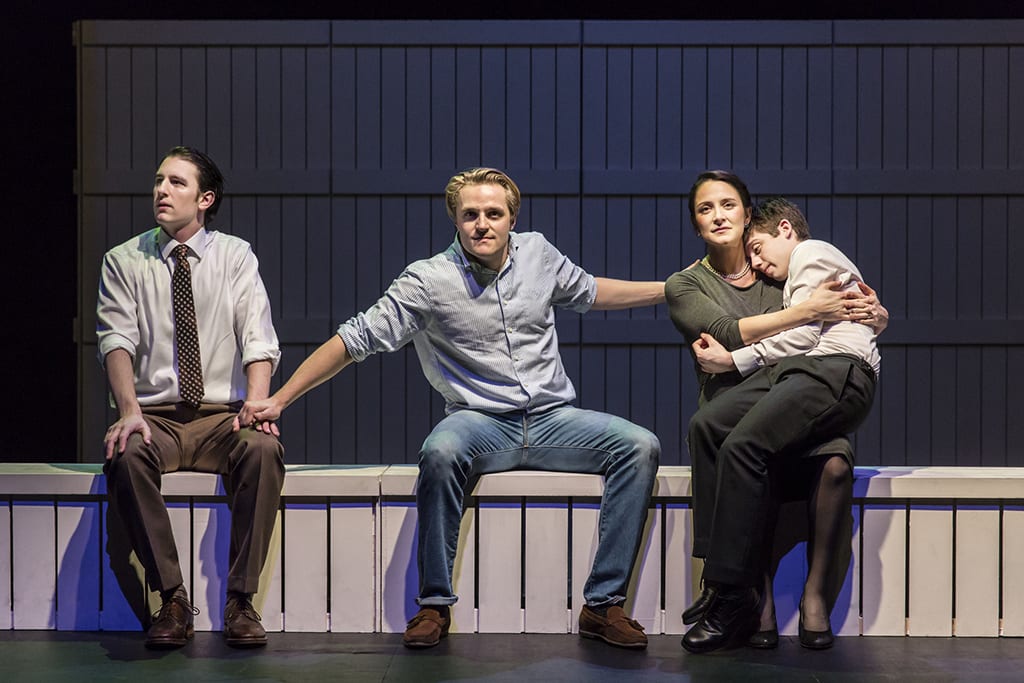If you come to The Winter’s Tale expecting to see a comedy, the first three acts may give you the impression that you have been severely misled. King Leontes fantasies an affair between his wife Hermione and childhood friend Polixenes. His inexplicable jealousy and rage leave his kingdom of Sicilia bereaved by the death of the Queen and the throne’s heir and by the loss of Leontes’s only remaining child, sent away at the King’s order. By contrast, the second half of the play, located in Polixenes’s Bohemia, is set in a markedly lighter, bucolic mood, taking place sixteen years after the events of the beginning of the play. One of the main qualities of Cheek and Jowl’s excellent production is to do justice to this varying atmosphere – although at the cost of a slightly jarring transition.
The production is set in modern times. Leontes’s Sicilian palace is sparsely rendered by an all-white set, with its servants all dressed in black and women in white-collared uniforms.
The production recurrently draws on the theme of spectatorship. The play takes the time to build up and dissect the family’s intimacy, portrayed in Hermione’s (Natalie Radmall-Quirke) insistent kisses to her son Mamillius (Tom Cawte), and in the latter’s fits of tantrum. When the king noisily calls upon his servants to witness his wife’s dishonour, she awkwardly smiles and winces at the servants to cover up her husband’s nascent fury.
The royal household’s dynamics whiff of racial and sexual violence, embodied in the overwhelming scenic presence of the king. Orlando James gives Leontes an air of wanton boyishness, wrestling with his friend, Polixenes, with the same barely refrained strength he then uses to play with his son, or to threaten his black servant Camillo (David Carr). Leontes’s tyranny builds on spectacle. He is as quick to fabricate facts to satisfy his jealousy as to accuse his wife of being ‘past’ them. This portrayal of the manufacturing of truth is certainly one of the most compelling and timely dimensions of the performance.
We move on to rural Bohemia with the raunchy jokes of an old shepherd (Peter Moreton). A less convincing moment is the appearance of the bear, which in the play marks the passage from Sicilia to Bohemia, but on stage feels like watching a Planet Earth trailer. The second part of the production builds freely on the original script, turning the sheep-shearing feast into a colourful mix of talk show and folk concert, effectively breaking away from the stifling oppression of Leontes’s kingdom. The women wear gaudy dresses, the men are in countryside clothing and laurel crowns, and all dance before the ironic gaze of Autocyllus (Ryan Donaldson), a thief turned master of ceremony for the occasion. The production gathers pace until the ending, which revives the emotional density of the first half in a superb tableau.



